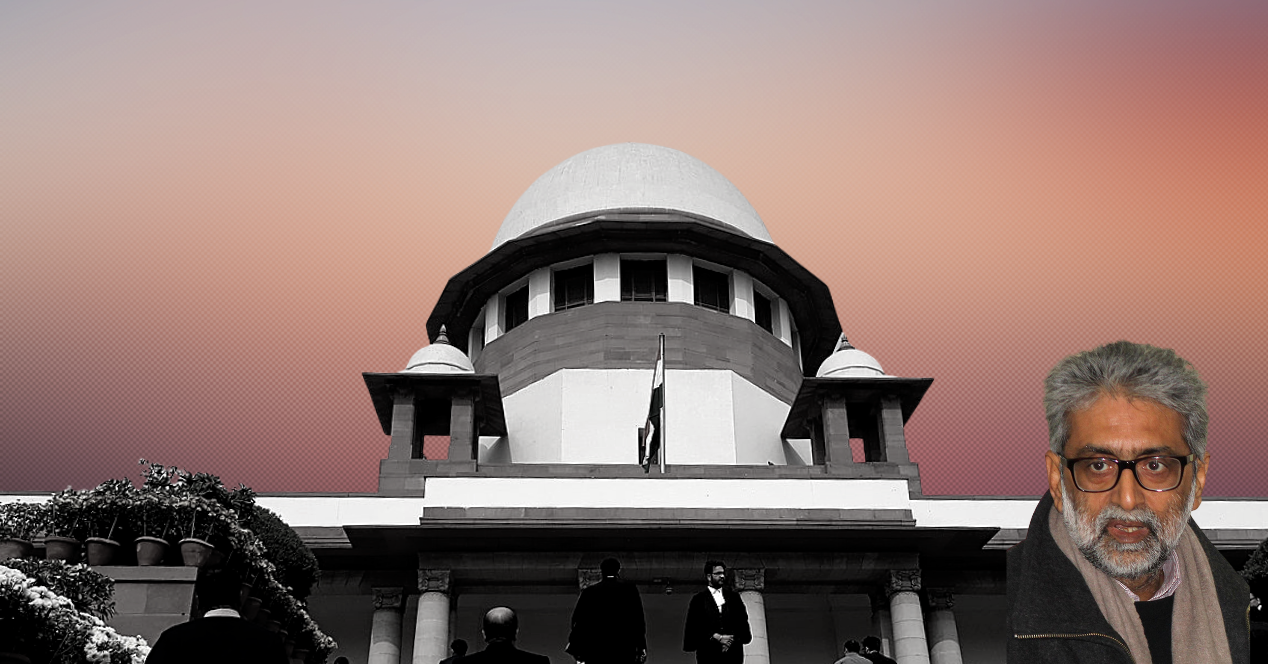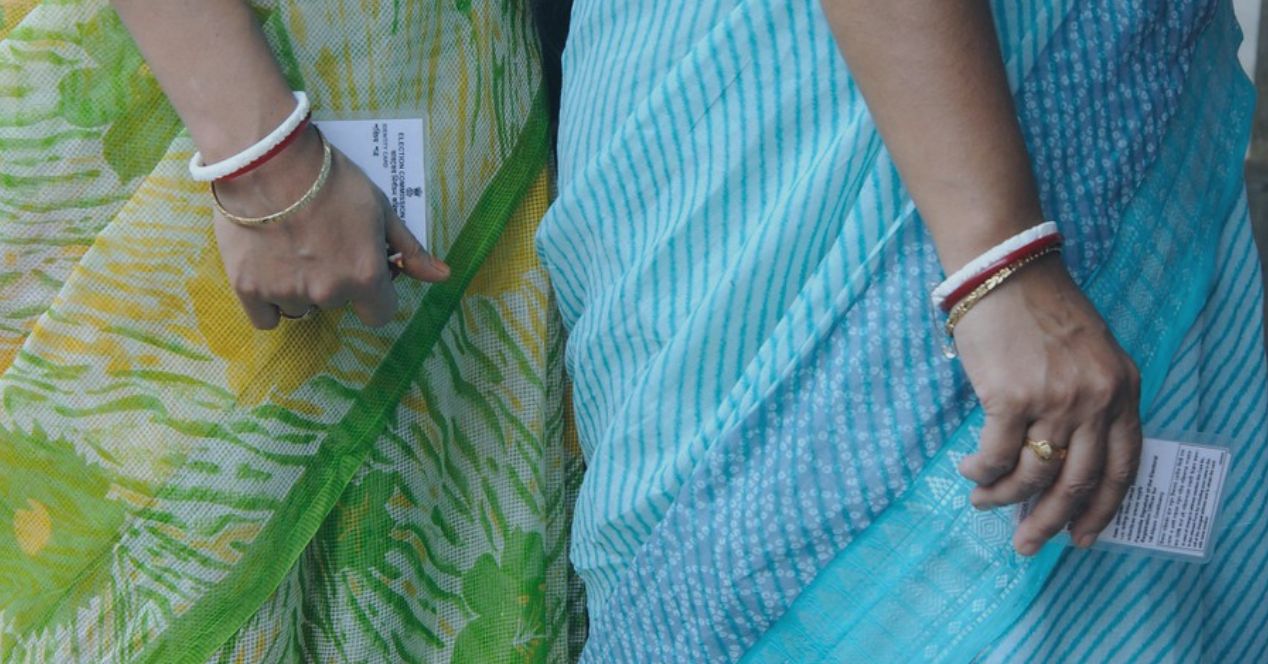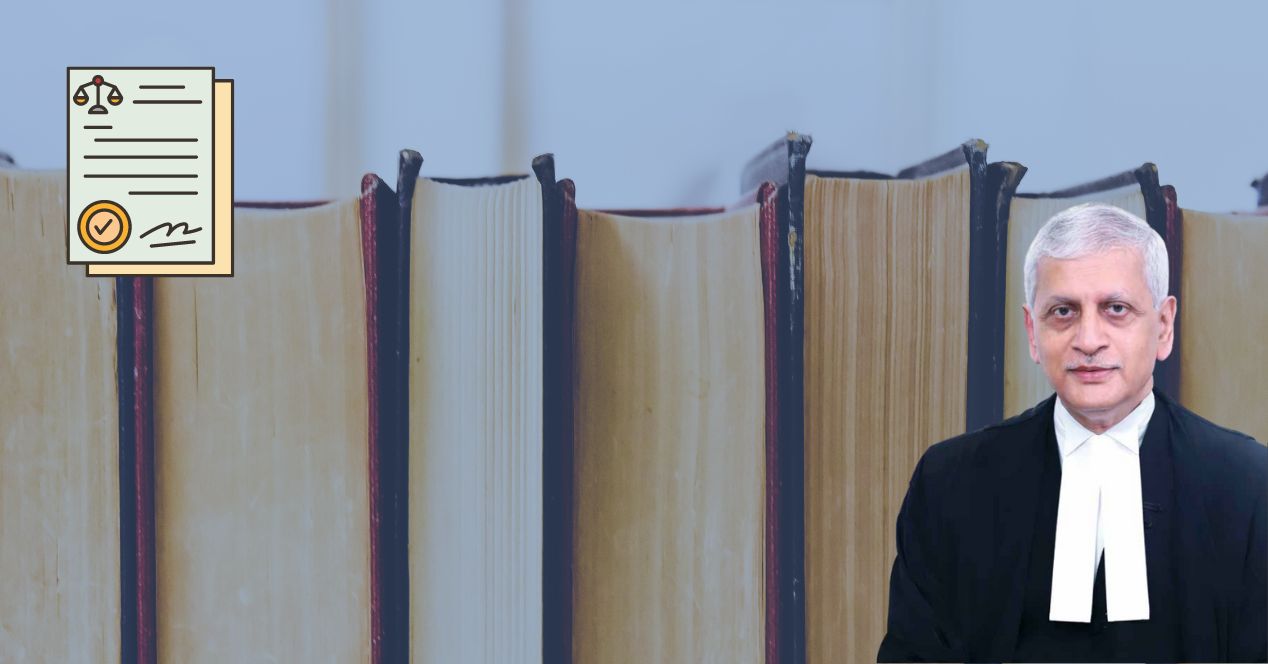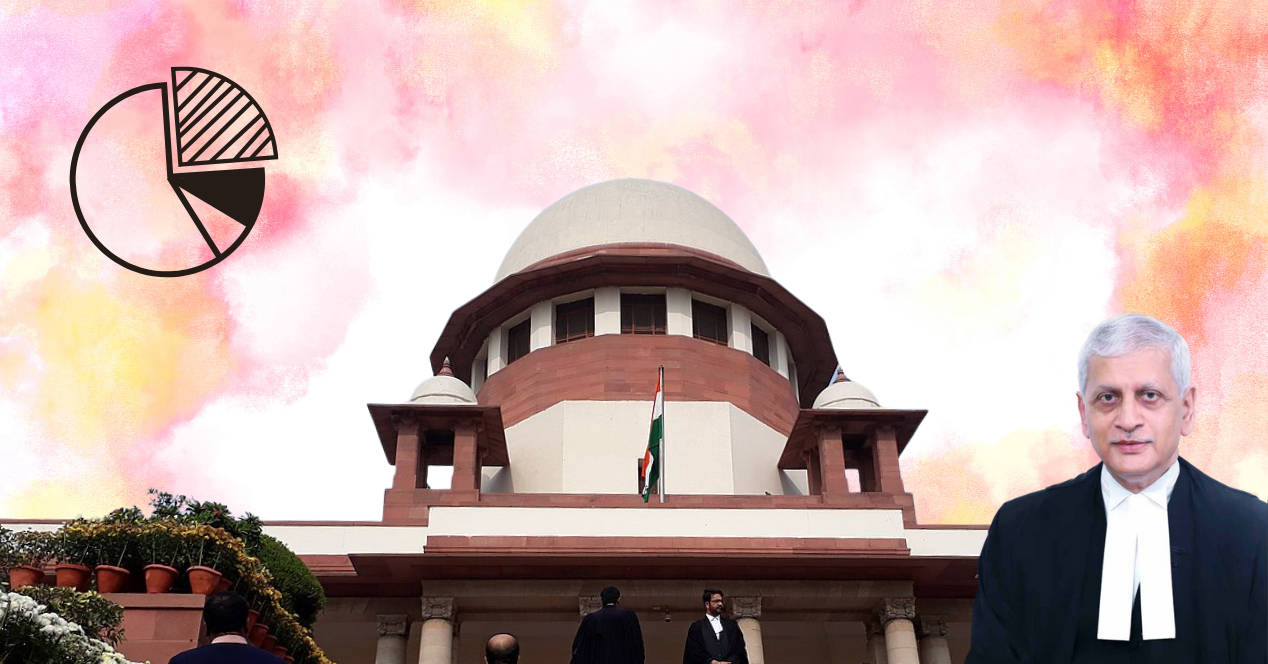Analysis
November Monthly Review
CJI Lalit retired at the beginning of November 2022, but the Constitution Bench listed during his term continued to be heard.
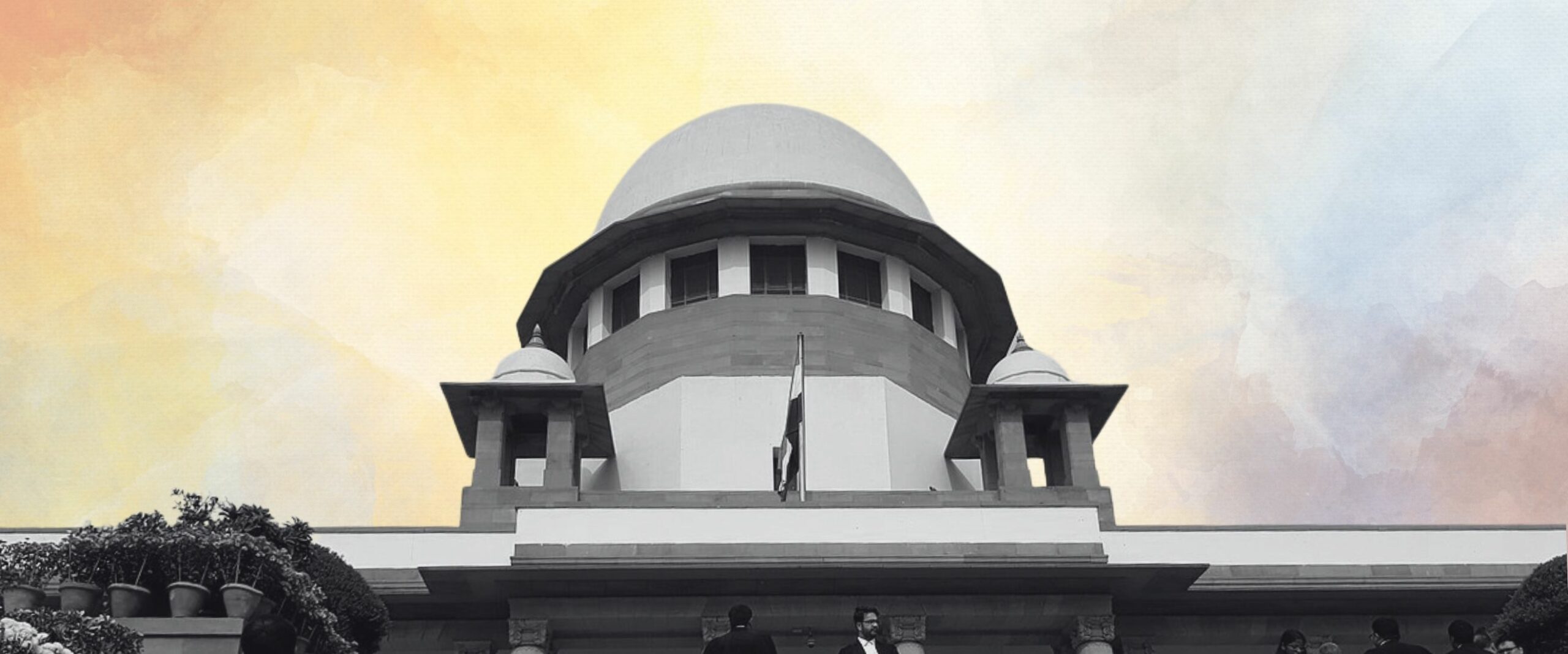
In November 2022, Chief Justice of India D.Y. Chandrachud took the SC’s reins following CJI U.U. Lalit’s retirement. The Court continued to make progress in important cases, including the remaining Constitution Bench cases that were listed under CJI Lalit.
CJI Lalit Retired After 74-Day Tenure
Despite CJI Lalit’s brief tenure as the Chief Justice, which concluded on November 7th, 2022, he was determined to make an impact that would survive his retirement. His most significant reforms were his decision to change the hearing and listing system in order deal with the growing number of pending cases, as well as his decision to list multiple Constitution Bench cases for the first time in over a year. Supreme Court senior advocates welcomed these changes, speaking positively to SCO about Justice Lalit’s attempt to bring the Court back on track after its chaotic COVID era.
During his 8.25 year tenure as a Supreme Court Judge CJI Lalit wrote 301 Judgments, making him the third most prolific author at the time of his retirement. Over a third of his Judgments were written in criminal law cases, including an important dissent where he held that all convicts, including death row convicts, must be given the opportunity for remission. He also wrote a Judgment emphasising the importance of due process in cases where the death penalty is a possible sentence. Read about CJI Lalit’s tenure in numbers and the most important Judgments he wrote during his tenure.
SC Upheld Reservations for Economically Weaker Sections
On CJI Lalit’s final day in office, the Constitution Bench led by him delivered their decision in a 3:2 split, upholding the Constitution (103rd) Amendment, 2019 which introduced reservations for Economically Weaker Sections (EWS). Justice Ravindra Bhat wrote the dissenting opinion for himself and CJI Lalit. Justices D. Maheshwari, B.M. Trivedi and J.B. Pardiwala wrote separate concurring opinions upholding EWS reservations.
CJI Lalit and Justice Bhat held that EWS reservations—based solely on economic criteria— violated the Right to Equality as the Amendment excludes Scheduled Castes, Scheduled Tribes and Other Backward Classes from consideration for reservation benefits. The majority disagreed. They stated the beneficiaries would be those who were not already benefiting from existing reservation schemes. SCO broke down the arguments made over eight days of hearings, and the opinions of each of the judges.
Should Additional Restrictions be Placed on Public Official’s Freedom of Speech?
In 2016, Samajwadi Party leader Azam Khan publicly called the gangrape of a 13-year old girl and her mother a ‘political conspiracy against the Uttar Pradesh government’. The victims filed a writ petition at the SC, claiming that the comments jeopardised their right to a fair investigation (which falls under the right to life) in the State of Uttar Pradesh. They requested the Court to transfer the case to another State.
In April 2017 the Court referred the case to 5-Judge Constitution Bench to decide if additional restrictions may be placed on a public official’s freedom of speech to make public comments, in favor of another person’s right to life. The Bench led by Justice Abdul Nazeer heard the case for a single day on November 15th, 2022 and reserved Judgment.
The Petitioners argued that the Court should create a code of conduct that would be applicable until Parliament itself framed such a code. The Union argued that the case merely presented an ‘academic question’ and creating a code of conduct is outside the scope of the Court’s powers. Read SCO’s report of the hearing here.
Can a New Accused be Summoned After Judgment is Delivered?
On November 17th, 2022, a Constitution Bench led by Justice Abdul Nazeer reserved Judgment in a criminal law case with broad ramifications. Section 319 of the Code of Criminal Procedure, 1973 allows Courts to summon a new accused ‘in the course of any inquiry into, or trial of, an offence’ if the evidence indicates their involvement in the offence. However, on October 31st, 2017 a Sessions Court summoned five new persons in a case after the Judgment was delivered.
These five persons approached the SC to challenge this decision, claiming that the summons after a Judgment cannot be said to be during the ‘course’ of a trial. The Advocate General for Punjab, Vinod Ghai, argued that the case does not conclude until a sentence is decided which takes place after the Judgment is delivered. Assistant Solicitor General S.V. Raju argued that this was merely a procedural irregularity and the summons remain valid. The Bench reserved Judgment in the case on November 17th, 2022. Read SCO’s coverage of the case here.
Is the Independence of the Election Commission Under Threat?
On November 24th, 2022 the Supreme Court reserved Judgment in the challenge to the appointment process for Election Commission of India members. Article 324 of the Constitution states that Parliament has the power to enact a law governing the appointment process. However, Parliament has not enacted a law on the subject, and in the absence of a law the same Article 324 gives the President the power to make appointments based on the Prime Minister’s recommendations.
The Petitioners have argued that the process is arbitrary, increases the possibility of bias towards the ruling party and violates the right to free and fair elections, which is a part of the basic structure of the Constitution. Meanwhile, the Union government claims that there is no record of bias or dysfunction to justify the SC’s interference in the current system of appointments. The Constitution Bench led by Justice K.M. Joseph heard the case for four days and reserved Judgment on November 24th, 2022. Read SCO’s Background of the case and detailed reports on the hearings here.
Was the Union’s 2016 Demonetisation Scheme Reasonable?
In November 2022, the Constitution bench led by Justice K.M. Joseph, at long last, heard arguments in the challenge to the Union government’s 2016 demonetisation scheme. The scheme was challenged at the SC one day after it was announced, by advocate Vivek Narayan Sharma, on November 9th, 2016.
After all the challenges in various High Courts were transferred to the SC and the case was referred to a Constitution Bench, it sat on the SC’s shelf for nearly six years. The Constitution Bench finally began hearing substantive arguments on November 9th, 2022. The petitioners argued that the Union did not follow proper procedure for demonetisation despite the vast impact it would have on the country.They also claim the Union did not implement the scheme in a reasonable manner.
The Union, for their part, claims that the scheme achieved its intended objectives by shifting the country towards a digital economy, and that the decision was made after following the correct procedure. Read more about the case here.
Is Jallikattu a Constitutionally Protected Cultural Practice?
On November 24th, 2022, the Constitution Bench led by Justice K.M. Joseph began hearing the challenges to bull-taming sports like Jallikattu in Tamil Nadu and bullock-cart racing in Maharashtra. The SC banned these practices in 2014 for causing unnecessary pain and suffering to animals, which violates the Prevention of Cruelty to Animals Act, 1960 (PCA Act).
However, in 2017 the Tamil Nadu Legislature enacted an Amendment to the PCA Act which allowed the practice of Jallikattu. The Maharashtra Legislature enacted a similar Amendment to permit bullock-cart racing in 2018. Both of these Amendments are now the focus of another Constitution Bench challenge filed by animal rights activists and organisations.
The petitioners are arguing that the facts surrounding the initial ban have not changed and the sports still cause unnecessary pain an suffering to the bulls involved. The Union and State governments on the other hand, are arguing that the sports are protected under Article 29 of the Constitution as cultural practices. Further, they claim that rules have been introduced in order to safeguard the animals from unnecessary pain and suffering. Read more about the case and the arguments posed by the parties here.
SC Reprimands National Investigation Agency for Challenging Gautam Navlakha’s House Arrest
On November 10th, 2022 Justices K.M. Joseph and Hrishikesh Roy allowed Gautam Navlakha, human rights activist and Bhima Koregaon accused, to be shifted to house arrest for health reasons. The National Investigation Agency (NIA) filed an application to set aside the house arrest Order, claiming that Mr. Navlakha suppressed facts about his arrest. The application was heard and dismissed on November 18th, with the Bench expressing their incredulity at the NIA’s contentions. They stated that it was hard to believe they could not keep a watch on an ailing 70-year old man. Read SCO’s report on the hearing here.
SC to Decide if Union can Withhold Relevant Documents Concerning Petitioners in MediaOne Case
The story of the broadcast ban placed on Kerala-based MediaOne TV may come to an end soon. The Ministry of Information and Broadcasting submitted the material that served as a basis for the ban in January 2022. However, the material was submitted in a sealed cover, withholding access from the petitioners and only the Bench was allowed to examine it. The ministry claimed this was done to protect national security.
The petitioners vehemently contested this, claiming that withholding the relevant material denies them the opportunity to effectively defend themselves. On November 3rd, 2022, a Bench comprising Justices Chandrachud and Hima Kohli reserved the case for Judgment. They will also decide whether Judgments can be delivered based on documents submitted in a sealed cover. Read SCO’s report of the hearing here.

